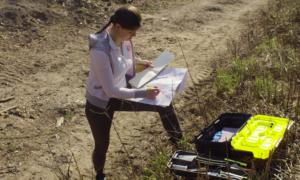Kim Sabo Flores
Jossey-Bass/Wiley
181 pages. $45.
Most youth workers understand youth participation as young people’s involvement in planning and leading their own programs. But what is youth participatory evaluation (YPE)?
According to Kim Sabo Flores, YPE is an emerging field that “involves young people in the process of evaluating the programs, organizations, agencies and systems that have been designed to serve them.”
A pioneering consultant who has trained many youth and their programs’ stakeholders to implement such evaluations, Flores offers this lively YPE primer. How can evaluation become an empowering collaboration with youth? When it moves beyond youth development’s asset building, asserts Flores.
Young evaluators perform new roles as interviewers, reporters, researchers, mentors, leaders and public speakers. As experts on their own program content and their peers’ thinking and behavior, youth make decisions with all stakeholders, including the most powerful adults.
Flores coaches facilitators of “ensemble” YPE teams to operate as directors of a play, building “with what the young people are giving you … the good, the bad, and the ugly.” Through games and playful activities, “performance helps young people and adults develop”
by trying on identities, interacting and discovering, says Flores, a theater veteran.
“The primary objective for conducting YPE projects is usually not individual learning or skill development,” she notes. “Rather, it is about creating environments with youth that support their development” as they discover “their power as agents of change.”
Flores offers a wealth of tools for achieving this. Frequent sidebars describe highlights of Flores’ consulting experiences, such as “If This Organization Were a Movie,” an icebreaker that reveals a group’s issues and challenges during a fun performance of its two-minute “movie.”
Objectives and steps for each part of the YPE process are provided. The planning chapter, for example, contains a program’s logic modeling exercise; a “reality wheel,” which clarifies program goals; a “story board,” which shows how goals are achieved; and instructions for formulating evaluation questions. Remaining chapters cover how to train young people in interviewing, facilitating focus groups, developing surveys, collecting and analyzing data, journaling and writing reports.
Flores concludes with reflections on her own “transformative and joyful experience” developing these methods with youth around the world. This quietly radical book encourages youth workers to risk co-creating powerful collective experiences by “treating youth as who they are becoming.”
“Youth really enjoy working on YPE projects,” asserts Flores. “Conducting a YPE project might be one of the most challenging activities that you ever do,” but “it will also be one of the most rewarding experiences of your life.” (415) 782-3213, http://www.josseybass.com.































